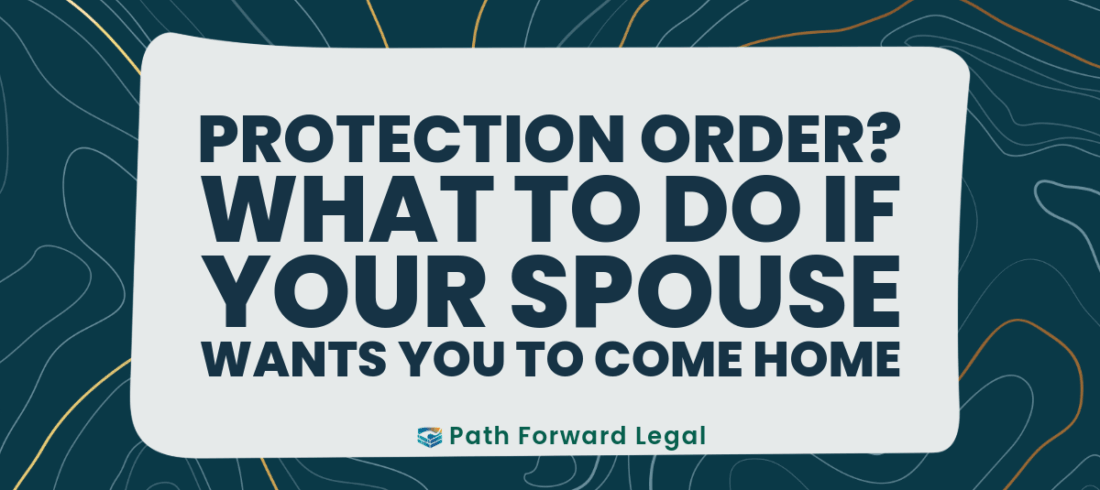Facing criminal charges in Colorado? Understand how mandatory protection orders work, why they exist, and what they mean for your rights and future.
Table of Contents
- What Is a Mandatory Protection Order?
- Why Does Colorado Require These Orders?
- The Federal “Brady” Law & Firearm Restrictions
- What Does the Order Actually Say? (Terms & Conditions)
- Penalties for Violating a Protection Order
- Examples of Protection Order Violations
- How to Modify or Remove a Protection Order (Including VRA Notice)
- When Does the Protection Order End?
- Frequently Asked Questions
- Need Help? Contact Path Forward Legal
What Is a Mandatory Protection Order?
A mandatory protection order (often called a “restraining order”) is a court order automatically issued in almost every Colorado criminal case—especially those involving domestic violence, threats, or harassment.
Purpose:
To protect the alleged victim (“protected party”) and the public while the case is pending or during probation.
Who is covered?
The defendant (accused) is barred from certain behaviors toward the protected party—this may include intimate partners, family members, or anyone named in the case.
Why Does Colorado Require These Orders?
The Colorado legislature requires mandatory protection orders in any case governed by Title 18 of the code, particularly ones involving threats, violence, or intimidation. C.R.S. 18-1-1001. These laws are supposed to reflect Colorado’s “commitment” to victim rights and public safety. However, the MPO is issued even if the “victim” in the case objects and does not want a protection order.
The Federal “Brady” Law & Firearm Restrictions
The Brady Handgun Violence Prevention Act (federal law) bars anyone under a qualifying restraining or protection order from possessing firearms or ammunition. Colorado’s Mandatory Protection Order form has a section at the top that reflects whether the case is governed by the Brady act. If the judge finds that the case is governed by this federal law, then you cannot have any firearms while the MPO is in place.
How does this affect a defendant?
A defendant with a protection order must surrender all firearms and ammunition while the order is active. Violating this can bring new charges and is a violation of bond in the original case.
You must comply with Colorado’s laws on the relinquishment of firearms even if you do not have a weapon. In many cases, particularly in domestic violence cases, you have a short deadline to file an affidavit with the court stating that you have no firearms or saying how you have lawfully transferred them.
You must comply with both state and federal law on firearms, or face serious consequences. This includes following the law on the transfer of firearms.
What Does the Order Actually Say? (Terms & Conditions)
The standard Colorado protection order generally requires that the defendant:
- Has no contact with the protected party (in person, by phone, text, email, social media, or through others).
- Stays away from the protected party’s home, workplace, or school.
- Does not harass, molest, intimidate, retaliate against, or tamper with the protected party or any witnesses.
- Does not possess or attempt to possess firearms or ammunition.
- Complies with any other conditions set by the court (for example, sobriety, GPS monitoring, or moving out of a shared residence).
In rare cases, the court might allow limited contact (such as for child exchanges), but only if specifically stated in the order.
Penalties for Violating a Protection Order
Violating a protection order is a separate crime in Colorado (C.R.S. 18-6-803.5).
Consequences include:
- Immediate arrest (often without a warrant)
- New misdemeanor charges (or felony if firearms are involved)
- Possible jail time or stricter bond conditions
- Harsher sentencing on your original case
Examples of Protection Order Violations
- Any message, even a single text or “like” on social media
- Having a third party pass a message for you
- Accidental or intentional contact at the protected person’s work or home
- Failing to surrender all firearms or ammunition
Note: “They contacted me first” or “I just wanted to apologize” is *not* a legal defense.
How to Modify or Remove a Protection Order (Including VRA Notice)
You **can** ask the court to modify or remove a protection order, but there’s a process. Only a judge can legally modify or lift the order. Judges are very cautious, especially in domestic violence cases. Modifications (like allowing limited contact) are rare and only if the court finds no safety risk and the protected party does not object.
Always go through your attorney—do not try to negotiate directly with the protected party.
Your attorney will give the prosecutor notice that they want to modify the protection order. The prosecutor has to inform the protected party of the requested modification. If this notice requirement is not met, the judge cannot modify the protection order.
The judge will typically hear a request to modify a protection order and the next scheduled court date, if notice is properly given. Some judges refuse to modify a protection order within the first 30 days of the case. Others will hear both sides and may modify the order even if the prosecution objects.
When Does the Protection Order End?
The order generally remains until the case is completely resolved.
- If convicted and sentenced to probation or deferred judgment, it often continues as a probation condition.
- Once your case is dismissed or you finish all sentence terms, your attorney can request to have the order lifted.
Never assume the order is over until you have written confirmation from the court or your attorney.
Frequently Asked Questions
Q: Can I talk to the protected party if they contact me?
A: No. You are prohibited from contact, no matter who initiates.
Q: Can I get my firearms back after the case?
A: Only if you are no longer subject to a protection order or other prohibitions.
Q: Do I need a lawyer to modify the order?
A: It is strongly recommended—mistakes can lead to new criminal charges.
Q: Can I return home if there’s an order?
A: Not unless the court specifically allows it.
Need Help? Contact Path Forward Legal
If you’re facing a mandatory protection order in Colorado, you need clear advice and local experience. Contact Path Forward Legal for a free consultation.



